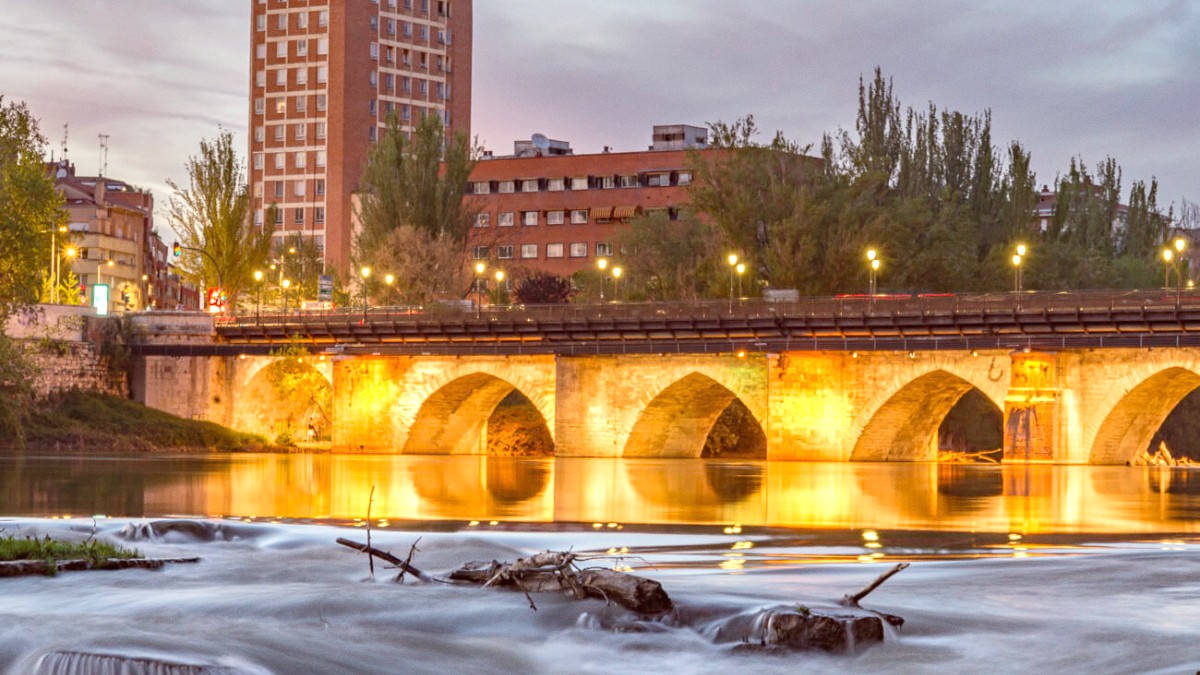
Spain
Valladolid, as the capital of Castilla y León, features a hearty, traditional Castilian cuisine. This food highlights robust flavors, high-quality meats (especially lamb and pork), and a strong emphasis on seasonal, local produce. It is rustic and connected to agricultural traditions, reflecting the region's history.
Meats like lamb (cordero), suckling pig (cochinillo), beef, and game meats are prominent. Common vegetables include onions, garlic, and peppers. Olive oil is a staple, used generously. Spices like paprika, saffron, bay leaf, and garlic add depth. The region is also famous for its wines, especially from Ribera del Duero DO and Rueda DO.
Light, usually between 8:00 AM and 10:00 AM, consisting of coffee and toast or a pastry.
Often takes place between 11:00 AM and 12:00 PM.
Between 5:00 PM and 7:00 PM.
A regional specialty. Whole suckling lamb, usually 20-30 days old, roasted in a wood-fired oven for crispy skin and incredibly tender meat. Served simply, often with its own juices.
Find at: El Figón de Recoletos or Mesón Casa Pedro.
Similar to lechazo, using pig, known for its incredibly crispy skin and succulent meat.
Widely available in traditional Castilian restaurants.
Sopa Castellana (Castilian Soup): hearty garlic soup with bread, paprika, and often a poached egg. Lentejas a la Garduña: flavorful lentil stew, often with chorizo or other pork products.
Traditional comfort food, ideal for cooler weather.
Piñones (Pine Nuts), Polvorones and Mantecados (crumbly, shortbread-like cookies, popular around Christmas). Rosquillas de Santa Clara (anise-flavored fried doughnuts).
Yemas de Santa Teresa: sweet treats mainly from egg yolks and sugar.
These establishments offer quality dining at reasonable prices, popular among locals and visitors alike.
For affordable meals and quick options, Valladolid's tapas scene is unmatched. "Street food" in the Western sense is not prevalent.
Valladolid's main covered market, recently renovated. Fresh produce, meats, cheeses, and gourmet food stalls where you can grab a quick bite. A great place to experience local culinary life.
Offers fresh ingredients and prepared foods.
While Castilian cuisine dominates, Valladolid has growing options for international food. Find Italian, Asian (Chinese, Japanese), and some Latin American restaurants, especially in more residential areas or near the university.
Explore diverse flavors beyond traditional Spanish fare.
Torrijas (French toast-like dessert) and Bacalao (cod) are common.
Cochinillo, turrón (nougat), and polvorones are widespread.
Held annually in November, a chance to taste innovative culinary creations.
Encompasses various gastronomic events throughout the year.
Availability is very limited in Valladolid. Travelers with strict dietary needs may need to rely on self-catering from supermarkets or sourcing international food stores in larger cities.
Plan accordingly for specific requirements.
Awareness is increasing. Many supermarkets carry gluten-free products. Some restaurants may indicate "sin gluten" (gluten-free) options on menus or advise you.
Learn basic Spanish phrases to explain your dietary needs clearly. EU regulations require allergen listing, but this might be in Spanish only.
If you have very specific dietary needs, consider renting an apartment with a kitchen and cooking your own meals using ingredients from local markets.
Inform restaurant staff about your restrictions upon arrival. Many places are accustomed to common requests.
Several local companies lead you to various bars to sample specialties and learn about local food culture, revealing insights you might miss on your own.
Highly recommended. Numerous bodegas in the Ribera del Duero and Rueda wine regions offer tours and tastings. Many are easily accessible as day trips from Valladolid.
Some producers in the region offer visits, providing a chance to learn about local cheese production and tasting.
Cooking classes, specifically for traditional Castilian cuisine, are less common in Valladolid city. Some specialized tour operators may offer bespoke experiences.
Inquire with local tour agencies for availability.
Beyond tasting, direct participation in food preparation can deepen your appreciation for local culinary traditions.
Look for opportunities to connect with local chefs or home cooks.
Valladolid's cuisine is known for its robust flavors and high-quality meats, a true reflection of Castilian tradition.
The region is famous for its Ribera del Duero (red) and Rueda (white) wines, perfect companions to any meal.
Embrace the "ir de tapas" culture, a social activity where you move from bar to bar, enjoying small dishes and drinks.
If you have dietary restrictions, carry a small card with your needs written in Spanish. This helps restaurant staff understand your requirements clearly.